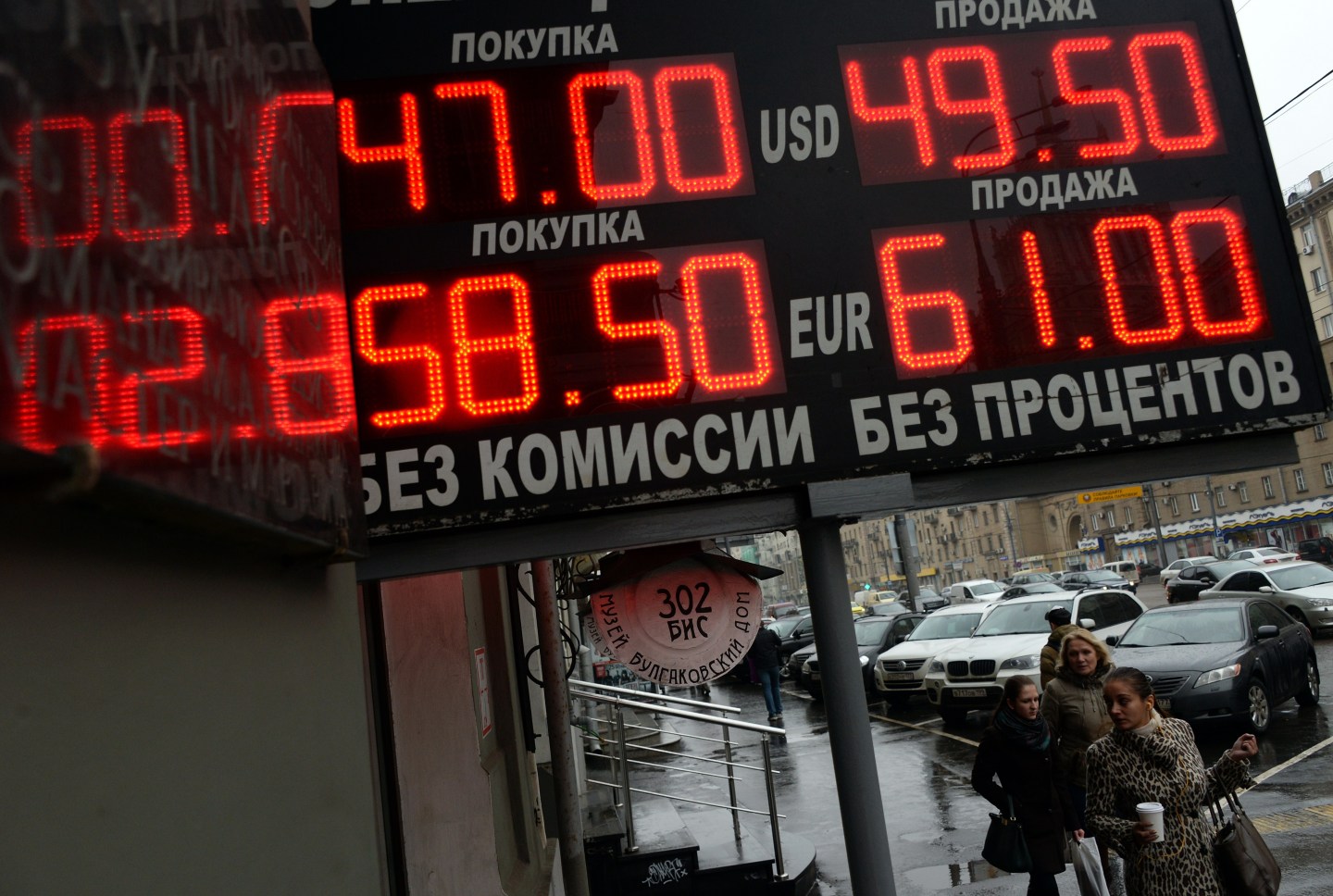The London stock exchange is about to lose three of its major Russian companies.
All three companies produce various commodities. The collapse in commodity prices—plus the double whammy of being based in Russia, an emerging market that has particularly struggled recently—have hurt the company’s stocks to the point that they are planning to delist in London, Bloomberg reports.
The companies include oil producer Eurasia Drilling Co., potash miner Uralkali PJSC and gold miner Polyus Gold International. Two of the companies, Eurasia Drilling and Polyus Gold, are planning to exit the London exchange via buyout transactions that will take the companies private.
Eurasia Drilling has had a bad year in the British market, with its share price down about 55%. Meanwhile, the Russian companies may fare better on the Moscow market than they have in London: Uralkali, for one, dropped 11% on the London market over the last year, but soared 34% on the Russian stock exchange.
The difference in performance is due to currency fluctuations, as the decline of the Russian ruble boosted stock returns in the local currency.











